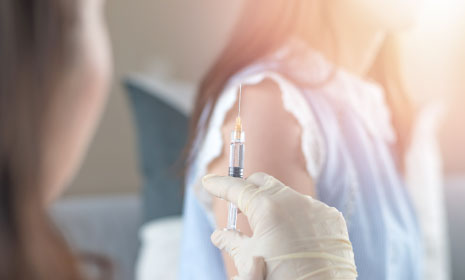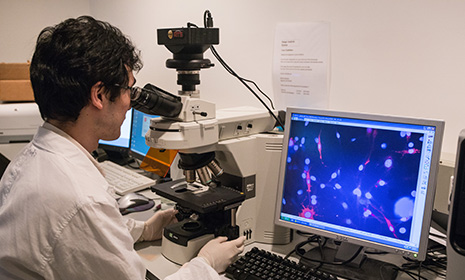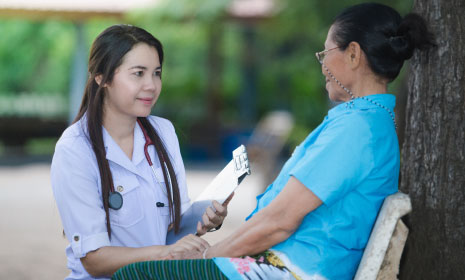Kim, Youngwon

Division of Kinesiology
- BS, MS, PhD
Biography
Professor Youngwon Kim is Associate Professor (tenured) in the School of Public Health at the University of Hong Kong (HKU) Li Ka Shing Faculty of Medicine. Professor Kim received his post-doctoral training in the MRC Epidemiology Unit at the University of Cambridge School of Clinical Medicine, UK. He earned his Ph.D in kinesiology and a minor in statistics from Iowa State University, USA: a master’s degree in exercise science from the University of South Carolina Arnold School of Public Health, USA, and a bachelor’s degree in business administration from Hanyang University - ERICA, South Korea. Before joining HKU, Professor Kim worked as Assistant Professor at the University of Utah, USA.
As a physical activity epidemiologist, Professor Kim has focused his research on understanding the preventive role of physical activity from an epidemiological perspective. Specifically, he has examined the associations of physical activity, and fitness with various mortality, cardiovascular disease and cancer outcomes using data from the UK Biobank project, an ongoing national cohort study of >500,000 UK adults. More recently, he has explored the potential role of sedentary behaviour, physical activity or fitness in modifying the increased genetic risk of common chronic diseases not only in European descendants but also in East Asian descendants using multiple large-scale cohort datasets. His recent work has also focused on developing and validating risk prediction models for common chronic diseases using both genotype data and lifestyle indicators (including wearable-device-measured physical activity). In addition, he has been carrying out clinical trials to determine the effects of wearable device functions alone or in combination with genetic risk communication or health coaching on behaviour change and cardiometabolic risk markers.
His primary research interest also lies in improving methodologies for conducting physical activity epidemiology research. Professor Kim's publications in this line of research have focused on evaluating the utility and validity of various accelerometer-based wearable devices and self-reports to assess physical activity in both children and adults.
As the Principal Investigator (PI), Professor Kim has received a total of 5 external research grants (1 from U.S. National Academy of Medicine, 2 from General Research Fund [GRF], and 2 from Health and Medical Research Funds [HMRF]) totaling >HK$4.6 million [>US$590,000; direct costs only].
He currently serves on the Editorial Boards of BMC Medicine, and International Journal of Behavioral Nutrition and Physical Activity.
Professor Kim has been interviewed by multiple media outlets including Bloomberg, Guardian, Daily Mail, Healio and BBC Radio, with his research findings reported by various other media including The Times, The Telegraph, The Independent, Mirror, The Sun, Ming Pao, and Am730.
Selected Publications
- Shi, Q., Jang, H., Collings, P.J., Wang, M., Chen, Z., Luo, S., Au Yeung, S.L., Wan, Y.F., Griffin, S., Sharp, S.J., Day, F., Ong, K., Brage, S., & Kim, Y. (In Press). Different Intensities of Physical Activity Substituted for Sedentary Time and Risk of Type 2 Diabetes: Integration of Genetics and Wearable Data. Mayo Clinic Proceedings
- Collings P.J., Wang M., Ho H.S., Au Yeung S.L., Siu, P.M., Cowling, B.J., Sharp S.J., Brage, S., Wareham, N.J., Du H., Bennett D.A., Kim Y. (2025) Associations of reallocating sedentary leisure-time to alternative discretionary movement behaviours with incident cardiometabolic diseases in 0.5 million Chinese adults. The Lancet Regional Health – Western Pacific. 57:101524
- Wang, M., Collings, P.J., Day, F., Ong, K., Brage, S., Sharp, S.J., Jang, H., Suh, S., Luo, S., Au Yeung, S.L., Kim, Y. (2025). Genetic susceptibility to type 2 diabetes, television viewing time and atherosclerotic cardiovascular disease risk. Journal of the American Heart Association. 14(6):e036811
- Wang, M., Collings, P.J., Jang, H., Chen, Z., Shi, Q., Ho, H.S., Luo, S., Au Yeung, S.L., Kim, Y. (2025). Prospective associations between muscle strength and genetic susceptibility to type 2 diabetes with incident type 2 diabetes: a UK Biobank study. BMC Medicine. 23:93
- Kim, Y., Jang, H., Wang, M., Shi, Q., Strain, T., Sharp, S.J., Au Yeung, S.L., Luo, S., Griffin, S., Wareham, N., Wijndaele, K., & Brage, S. (2024) Replacing device-measured sedentary time with physical activity is associated with lower risk of coronary heart disease regardless of genetic risk. Journal of Internal Medicine. 295(1): 38-50.
- Brellenthin, A.G., Lee, DC., Lefferts, E.C., Lefferts, W.K., Dougherty, R.J., & Kim, Y. (2024) Physical Activity Intensity and Risk of Dementia. American Journal of Preventive Medicine. 66(6): 948-956
- Wang, M., Au Yeung, S.L., Luo, S., Jang H., Ho, H.S., Sharp, S.J., Wijndaele, K., Brage, S., Wareham, N.J., Kim, Y. (2023) Adherence to a healthy lifestyle, genetic susceptibility to abdominal obesity, cardiometabolic risk markers and risk of coronary heart disease. The American Journal of Clinical Nutrition. 118(5): 911-920.
- Wang, M., Brage, S., Sharp, S.J., Luo, S, Au Yeung, S.L., & Kim, Y. (2022) Associations of Genetic Susceptibility and Healthy Lifestyle with Incidence of Coronary Heart Disease and Stroke in Individuals with Hypertension. European Journal of Preventive Cardiology. 29(16): 2101–2110
- Kim, Y., Hwang, S., Sharp, S.J., Luo, S., Au Yeung, S.L., & Teerlink, C.C. (2021) Genetic risk, muscle strength and incident stroke: findings from the UK Biobank study. Mayo Clinic Proceedings. 96(7): 1746-1757
- Kim, Y., White, T., Wijndaele, K., Westgate, K., Sharp, S.J., Helge, J.W., Wareham, N., & Brage, S. (2018) The combination of cardiorespiratory fitness and muscle strength, and mortality risk. European Journal of Epidemiology. 33(10):953-964








.png)
